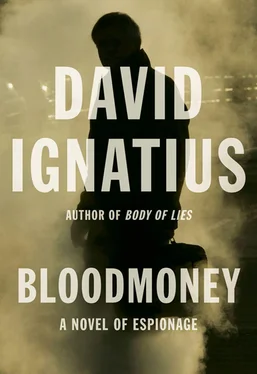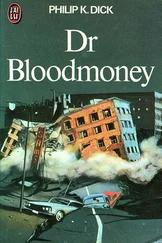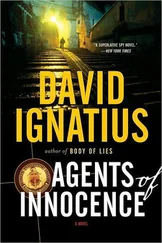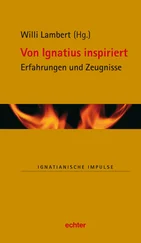David Ignatius - Bloodmoney
Здесь есть возможность читать онлайн «David Ignatius - Bloodmoney» весь текст электронной книги совершенно бесплатно (целиком полную версию без сокращений). В некоторых случаях можно слушать аудио, скачать через торрент в формате fb2 и присутствует краткое содержание. Жанр: Шпионский детектив, на английском языке. Описание произведения, (предисловие) а так же отзывы посетителей доступны на портале библиотеки ЛибКат.
- Название:Bloodmoney
- Автор:
- Жанр:
- Год:неизвестен
- ISBN:нет данных
- Рейтинг книги:4 / 5. Голосов: 1
-
Избранное:Добавить в избранное
- Отзывы:
-
Ваша оценка:
- 80
- 1
- 2
- 3
- 4
- 5
Bloodmoney: краткое содержание, описание и аннотация
Предлагаем к чтению аннотацию, описание, краткое содержание или предисловие (зависит от того, что написал сам автор книги «Bloodmoney»). Если вы не нашли необходимую информацию о книге — напишите в комментариях, мы постараемся отыскать её.
Bloodmoney — читать онлайн бесплатно полную книгу (весь текст) целиком
Ниже представлен текст книги, разбитый по страницам. Система сохранения места последней прочитанной страницы, позволяет с удобством читать онлайн бесплатно книгу «Bloodmoney», без необходимости каждый раз заново искать на чём Вы остановились. Поставьте закладку, и сможете в любой момент перейти на страницу, на которой закончили чтение.
Интервал:
Закладка:
What he saw in the Yahoo account this evening astonished him: The mischief-maker was persistent. You cut off this creature’s head, and still it kept moving. You closed down its financial hub and it found another way to move money. And back to Dubai, the same bank, too, and fifty million this time, to pay more bribes. This was arrogance, surely.
The professor had imagined the time when he might be satisfied in his hunger for revenge, but this was a special opportunity. He sent his Belgian correspondent a brief reply in Americanese:
Good stuff. Take care. Perihelion.
The professor moved quickly to exploit this gift of information, using the confidential network he had assembled over the past year. He sent a message to a Pakistani who worked at the Citibank branch in Dubai, and asked him to monitor the receipt of a large transfer coming from an FBS account in Geneva. He emailed another Pakistani who worked for the UAE aviation-security authority in Dubai and asked him to forward the names and credit card numbers of all tickets purchased for travel to Dubai over the next week.
It did not take him long to find a match. By late that night, Dr. Omar knew the identity of the woman who was coming to Dubai and when her flight would arrive. It was a paradox: This very person had appeared to show mercy, and yet she continued her evil work. He could only wonder at the cruel determination of the Americans. Their front company in London was collapsing, and still they continued with their meddling. That was why their adversaries would triumph; this America marched ever deeper into folly. It did not know when to stop. He wanted to go to Dubai himself to settle this account, as it seemed to him. But that would be unwise. Better to contact one of the members of his network.
Dr. Omar sent all his messages and left the computer lab after midnight for his lodgings to catch a few hours’ sleep. He rarely communicated in such a burst, but he was impatient.
The watchers and listeners were in place when the mysterious professor surfaced on the Internet. Cyril Hoffman had done his work: Small teams were on the ground waiting in Karachi, Peshawar and other Pakistani cities. Half a world away, people saw the messages, and they carried out the operations that had been planned. They were impatient, as well.
Dr. Omar drifted in and out of time when he put down his head on the pillow. He was sleeping at the apartment of a new friend, Aziz. The professor was changing lodgings every few nights now, to be safe. This man Aziz was part of the network that supported Dr. Omar’s work. He was a “connected” man.
Omar awoke suddenly, bathed in sweat. He had felt a sense of vertigo, not just stumbling as we do in our dreams sometimes, but falling through space as if from a great height, with nothing to break his fall. He tried to go back to sleep but he was roused after an hour.
“There is a call, Ustad,” said his host. “A man wants to speak to you.”
“I am not here. Tell him that it is a wrong number.”
“It is one of the brothers. He says he must talk now.”
Omar put the phone to his ear. He listened to the voice. He cried out, as if a blade had punctured his skin.
“Call me back, sweet brother, when you know,” he said, tears filling his eyes.
Then he dropped the phone. He put his hands to his head and then across his chest. He bowed and tried to kneel in prayer, but his legs were too wobbly and he fell.
“What is it, Ustad?” asked Aziz, reaching out to his guest and steadying him.
“There was a bomb this night in Peshawar at the home of my sister. I do not know if she and my nephew have survived.”
He turned to his host, his eyes wide with the horror of this new twist of the tourniquet of vengeance.
“I am not a good Muslim,” said Omar, taking his host’s hand. “You must help me pray for my nephew.”
The two men held hands and prayed together through the last hours of night. At length the phone rang again. Omar could not bear to answer it. He left it for Aziz. The host answered. He smiled and turned to Dr. Omar. He was still smiling as the tears formed in his eyes. That was how Omar knew that his nephew Rashid and his sister had survived.
“God is great,” murmured Omar.
Aziz nodded, but he was puzzled by what had happened.
“They wanted to kill me,” said Omar. “I have slept in that house in Peshawar. Instead, they nearly killed this innocent boy and his mother. But this plot failed. Perhaps it is enough.”
Dr. Omar put his head back down on the pillow. He had made a promise to God, in his prayers, when his young nephew’s life was in the balance. It was one of the promises that we all make when we are trying to bargain with God. If you spare this one I love, then I will stop. Give me this, and the score is even.
There was another message sent the next morning. A small bomb detonated at Bahria University just before dawn. The explosion shattered most of the windows in the engineering department, where the computer science faculty had its offices. No students were killed, mercifully. If the bomb had detonated several hours later, as they were coming to class, some of the young men would surely have been wounded.
Dr. Omar thought about his own graduate students when he heard the news. They were young men who had come to the city to do their studies, just as he had years before, the flower of the youth of Pakistan.
“It is a blessing,” Omar told his host, who brought him the news.
“But surely it is a curse from the evildoers,” replied Aziz. There were fresh tears in his eyes. He was angry. “They meant to destroy you with this bomb, too, Ustad.”
“No, it is a blessing, you see, that no one died. There is no more badal. We shall not argue about this anymore. I have had enough argument.”
Dr. Omar thought: I have brought this danger to people who were innocent. This is what wars do. They destroy the guilty, yes, but also the innocent. That is why all wars must end.
When he bathed and dressed that morning, the professor’s ruminations had hardened into a decision. It was time to resolve his business, to go back to the center point. He had been living on two sides of the world, on two sides of the knife. He could not do that anymore. Now it was time to close the double-edged franchise, for the project was nearly complete.
He was exhausted, in his head and heart. It had been more complicated than anyone could imagine. He had conducted his campaign of vengeance, as was required. But he had never stopped the other life, of providing advice and guidance. He had thought of himself as a giver and avenger, combined. He named the beneficiaries of the enemy’s largesse, so that these eminent persons were showered with money. Then he arranged to kill the courier-spies who came to deliver the payments. It had the simplicity of the balance wheel in a watch, flicking from side to side. But it could not continue.
Omar sent a message, to an account that he had not used for a very long time, to a man who had once been his mentor, for whom he had acted as a consultant, in fact, in the time before his world went dark. The man did not answer his message, so he called him by phone, using a cellular number that he had been told was only for the most unusual emergencies. It was a clean number; a phone to be used for this one purpose only.
The man answered in the comfortable, noncommittal way that Americans do. Yes, of course he remembered the professor. His consulting help had been invaluable. It would be a pleasure to see him again, indeed. A trip to Pakistan was impossible, but perhaps they could meet in London, where he had business. They would have to meet discreetly, leaving no electronic traces. It is always good to visit with an old contact, said the American, and close a circle.
Читать дальшеИнтервал:
Закладка:
Похожие книги на «Bloodmoney»
Представляем Вашему вниманию похожие книги на «Bloodmoney» списком для выбора. Мы отобрали схожую по названию и смыслу литературу в надежде предоставить читателям больше вариантов отыскать новые, интересные, ещё непрочитанные произведения.
Обсуждение, отзывы о книге «Bloodmoney» и просто собственные мнения читателей. Оставьте ваши комментарии, напишите, что Вы думаете о произведении, его смысле или главных героях. Укажите что конкретно понравилось, а что нет, и почему Вы так считаете.












